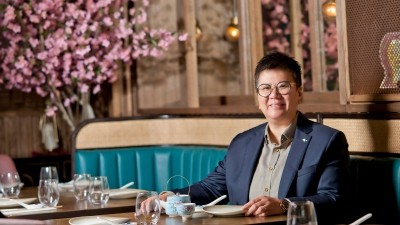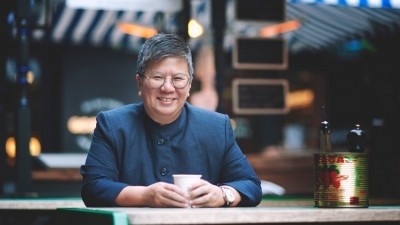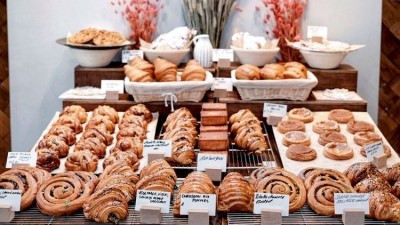Chewing the fat: Ellen Chew on the growth of her restaurant empire

Ellen Chew smiles amid a brief pause. The restaurateur, who first made her mark on the capital when she founded Chinatown’s Malaysian and Singaporean restaurant Rasa Sayang back in 2008, is quickly taking stock of how many new openings she currently has on her books. “We have another four set to launch in the short term, and a further five that we’re in negotiations with,” she says, confidently.
Another pause, another smile, and then she adds: “I don’t like just sitting down and waiting for things to happen.”
Certainly, no one could accuse Chew of resting on her laurels over the past 20-odd months. While the pandemic inevitably caused setbacks to the little-known Singaporean restaurateur’s sprawling estate, which also includes Lobos Tapas in London Bridge and Soho, Lotus Leaf in Westfield Stratford, and Simply Noodles in Bicester Village, she has remained steadfast in her determination to grow her diverse portfolio.
In the past year that’s included the launch of a Chinese-focused concept within Hammerson's Grand Central shopping centre in Birmingham called Mrs Chew’s Chinese Kitchen, which has since also expanded to a second site at Westfield London in Shepherd’s Bush; and partnering with pâtissier Alix Andre to open a permanent site for Arôme – the Asian-influenced bakery concept the pair established as a pop up in 2019 – at The Yards in London's Covent Garden.
“A lot of people wanted to try and wait out the pandemic, but from the start Ellen went the opposite way,” says Jay Sim, communications manager for Chew’s eponymous Chew on This restaurant group. “She wanted to push ahead as planned. Throughout she’s had this ‘never say no’ attitude, and when something didn’t work then we used the time to stop and rethink it.”
"Opportunities don’t just drop from the sky, and the pandemic meant we had to think outside the box"
“It was important, for me, to keep going,” adds Chew. “We were busier than ever during the lockdowns, testing and developing different concepts. Opportunities don’t just drop from the sky, and the situation meant we had to think outside the box.”
Bringing something new to Chinatown
We’re sat in the upstairs of a restaurant site on Frith Street in Soho that is temporarily playing host to Rasa Sayang while the original Macclesfield Street location undergoes a refurbishment. In an ideal world, the renovation would have been finished by now – work commenced in March 2020, two weeks before the first national lockdown hit – but the pandemic put paid to that. The expectation is that Rasa will relaunch in its original location this month.
Chew is excited to see Rasa Sayang return to Chinatown, an area of London that has faced insurmountable hardships and hostility during the pandemic; much of it as a result of racial prejudice aimed at the Chinese community.
“It felt like all the life had been sucked out of Chinatown,” she says, reflecting on the early days of the pandemic. “We never experienced any aggression personally, but we know people who did. It was heart breaking to see those businesses stigmatised like that."
“Things are getting better now,” adds Sim. “Footfall is really improving, and Shaftesbury (which owns much of Chinatown’s commercial property) has done a brilliant job at promoting the area and bringing customers back. It feels so great to see the restaurants thriving again, and we can’t wait to be back open there.”
Rasa Sayang was born out of Chew’s desire to show the capital what Malaysian and Singaporean food really looked like; something that she says was missing in central London at the time. “When I first pitched the restaurant, the landlord looked at me and asked if I was sure this is what I wanted to do. It was risky venture. Chinatown was dominated by cookie cutter restaurants serving roast duck and dim sum, and people said something this different wouldn’t work.”
Inspired by the bustling hawker scene of Malaysia and Singapore, the restaurant is billed as an ‘authentic representation’ of Straits cuisine. Stalwarts of the menu include Hainanese chicken rice; roti canai with curry chicken; Singapore chilli crab; and beef rendang. All are foods that westerners recognise and which are now commonplace in the capital, but when Chew first opened the doors at Rasa were still unfamiliar to many.
“Those first months were a real challenge,” she recalls. “We struggled a lot in the early days, but gradually word spread, and we saw ourselves getting busier and busier. There were customers who had journeyed over from Singapore just to visit our restaurant. It was amazing and showed the importance of trusting your gut and taking chances.”
Building a scalable business
Rasa Sayang is notable in being the only restaurant in Chew’s growing portfolio that she has no ambition to scale. Before arriving in London in 2005, she worked as a consultant for one of Singapore’s biggest food court operators, Kopitiam. While Rasa remains her flagship in the UK, much of Chew’s time is currently spent developing concepts that she believes have real growth potential.
“Scalability is crucial to everything we’re doing at the moment,” she explains. “It means we can always have momentum behind a brand. That’s why it’s so important to focus on getting the concept right at the start, so it can be in a position to expand rapidly.”
At the moment, Chew’s focus is on growing Mrs Chew’s Chinese Kitchen; and Shan Shui, a Southeast Asian fusion restaurant that opened its first site in Bicester Village back in 2018. The concept, which combines Indonesian, Sichuan, Malaysian and Shanghainese cuisines, is incredibly personal to Chew. Her grandmother was originally from Shanghai, and the restaurant’s art deco design is inspired by the city’s 1920s era.
“Shan Shui is very close to my heart,” she says. “It’s a melting pot of cuisines and influences, and really represents what we’re trying to do more broadly across the business with different concepts at the moment.”
Though it’s taken longer than initially planned, Shan Shui is now gearing up for growth. In December, Chew will open Shan Shui in Heathrow’s Terminal 2, marking her first foray into the airport space; and then, in the new year, she will bring the brand to London’s high streets, having secured a site on Buckingham Palace Road near Victoria station.
Another brand lined up for further expansion is Arôme, for which she is seeking a second site in the capital. Firmly embedded in French pâtisserie, Arôme’s menu celebrates traditional pastry methods while exploring multicultural flavours from Singapore, Japan and France. The signature bake is honey butter toast - a thick slab of fluffy Japanese milk bread that’s enveloped in a crunchy honey crust.
“Arôme’s following has just grown and grown since we first tested it as a pop up,” says Sim. “It’s popular with both families and office workers and is one we can see fitting into more central city locations and smaller neighbourhood settings.”
Creating new concepts
As well as growing the brands she’s already established, Chew is also working on new concepts to bring to the market. “It’s about finding a gap that we’re confident we can operate within. Even though it’s a pandemic period, it’s about whether you see the glass as half full or half empty. Mine is always half full.”
One project she and Sim are currently working on is Singpulah, a Singaporean concept they originally tested as a pop up alongside Arôme. Serving a selection of traditional hawker dishes, the menu included bak chor mee, noodles with minced pork; and chwee kueh, steamed rice cakes.
"Covid has been tough for both of us, but the lessons we’ve learnt from it professionally have been invaluable"
Neither Chew nor Sim will be drawn on how big each of their brands can grow, but both are determined to maintain the energy that has helped see them emerge from the pandemic with a larger portfolio and a bigger estate.
“Covid has been tough for both of us, but the lessons we’ve learnt from it professionally have been invaluable,” says Sim. “We’ve stayed on our toes, been able to manoeuvre quickly, and have managed to evolve in a way that has made us a bit more relevant in this time and age. If we hadn’t done that and instead just hunkered down and waited for the pandemic to pass, the business would have become stagnant.”
Chew adds that while she remains cautious about not spreading herself too thin, she’s confident in the direction of the group. “Larger businesses have been re-evaluating their portfolios and offloading sites that didn’t work, and this is great for people like us who are looking to try out new concepts and test out ideas.
“When I wanted to launch Rasa Sayang, I practically had to beg for a site. Now there’s so much availability in the market, and I don’t want to miss that opportunity. People are keen to get out there and hungry for new experiences, and we have plenty of ideas of how to deliver that.”
![Rasa_Sayang_-_Hero_Shot[1]](/var/wrbm_gb_hospitality/storage/images/media/images/rasa_sayang_-_hero_shot-1/4531691-1-eng-GB/Rasa_Sayang_-_Hero_Shot-1.jpg)
![shanshuiinterioriii[1]](/var/wrbm_gb_hospitality/storage/images/media/images/shanshuiinterioriii-1/4531709-1-eng-GB/shanshuiinterioriii-1.jpg)














